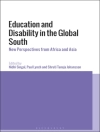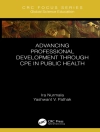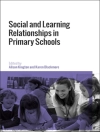Measuring competencies acquired over the course of higher education is an area of research that largely has been neglected. This deficit can be attributed to the complexity of academic competencies since the variety of institutions, programs, occupational fields and job requirements render it difficult to define and even harder to measure outcomes. Thus, assessing the preconditions for and effects of competency development is a challenge methodologically. In this book, a comprehensive review of the international state of research on modeling and measuring competencies in higher education across several academic disciplines is presented, along with an evaluation of the field’s strengths and weaknesses. Renowned experts share insight into the most important recent research projects and point out controversies and challenges. Competencies are regarded as context-specific dispositions acquired and required to cope successfully with domain-specific situations and tasks. However, the range of these dispositions is controversial. Should only cognitive facets be included or is it important to consider attitudes as well? Insufficient response rates and panel attrition are further challenges, as are the limitations of paper-and-pencil approaches to the complex measurement of higher education outcomes. Thus, this book may serve as a platform for the exchange of research experiences and perspectives and hopefully will instigate improvements in research into higher education.
Tabla de materias
INTRODUCTION; Modeling and Measuring Competencies in Higher Education: Tasks and Challenges; Sigrid Blömeke, Olga Zlatkin-Troitschanskaia, Christiane Kuhn and Judith Fege; PART 1: THEORY AND METHODOLOGY; Making Competent Judgments of Competence; An Approach to Testing & Modeling Competence; “I Know How to Do It, But I Can’t Do It”: Modeling Competence Profiles for Future Teachers and Trainers; A Strategy for the Assessment of Competencies in Higher Education: The BEAR Assessment System; Competence – More than Just a Buzzword and a Provocative Term?: Toward an Internal Perspective on Situated Problem-Solving Capacity; PART 2: INSTRUMENTS AND STUDIES; The Challenges of Measurement in Higher Education: IEA’s Teacher Education and Development Study in Mathematics (TEDS-M); OECD Assessment of Higher Education Learning Outcomes (AHELO): Rationale, Challenges and Initial Insights from the Feasibility Study; The Principles and Logic of Competency Testing in Higher Education; Measurement of Learning Outcomes in Higher Education: The Case of Ceneval in Mexico; The German National Educational Panel Study (NEPS): Assessing Competencies over the Life Course and in Higher Education; Modeling and Measuring University Students’ Subject-Specific Competencies in the Domain of Business and Economics – The ILLEV Project; Competence Models for Assessing Individual Learning Outcomes and Evaluating Educational Processes – A Priority Program of the German Research Foundation (DFG); PART 3: LONG-TERM OUTCOMES; Modeling and Measurement of Competencies in Higher Education – The Contribution of Scientific Evaluation; Measuring Competences in Higher Education: What Next?; Analyzing the Results of Study in Higher Education and the Requirements of the World of Work; PART 4: COMMENTARY; “Modeling and Measuring Competencies” Conference, Berlin, 24–25 February, 2011.












